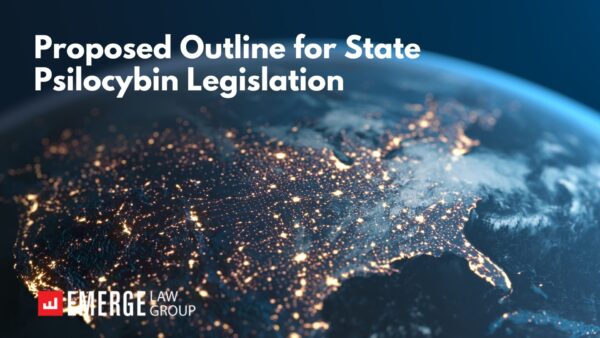by: Corinne Celko
In 2020 Oregon became the first state to legalize psilocybin, a psychoactive compound found in certain mushrooms. Measure 109, known as the Psilocybin Services Act, established a regulated program for adults over the age of 21 to purchase and consume psilocybin at service centers licensed by the Oregon Health Authority and under the supervision of licensed facilitators. However, though Measure 109 was passed by a majority of Oregon voters, psilocybin services may never be available in certain Oregon cities and counties. That’s because some cities and counties may place psilocybin business prohibitions on their local ballots for this year’s November 8 election.
Doing so would allow the electors in such jurisdictions to vote on whether or not to opt out of the legalized Psilocybin Services Act program. As of the date of this post, at least Deschutes, Jackson, Linn, Klamath, Josephine, Crook, Coos, Malheur, Morrow, Umatilla counties have already indicated that they may refer such “opt-out” ordinances to their electors for voting in November’s election. A county or city has until August 19 to refer an opt-out ordinance to its local elections official to ensure the ordinance can go on the November 8 ballot.
Local governments may see this option as the only way to protect their constituents from the perceived dangers of psychedelic substances in their communities. But Measure 109 provides cities and counties with other powers to regulate psilocybin services in their jurisdictions and local governments who refer this matter to their electors are simply seeking a second bite at the apple, to opt entirely out of psilocybin just as they could or did with adult-use marijuana.
Cities and counties are entitled to regulate the use of lands within their jurisdiction. And Measure 109 expressly allows cities and counties to adopt reasonable “time, place, and manner” restrictions for psilocybin-related businesses. This means that local governments can allow participation in the Psilocybin Services Act program, while still regulating aspects of such uses, such as to ensure the safety of minors and the quiet enjoyment of their communities. For example, cities and counties can limit the size of production and processing facilities to limit production; they can restrict hours of operation; and they can require buffer distances between psilocybin-related businesses and sensitive uses like playgrounds and parks. Cities and counties use these types of time, place, and manner restrictions to regulate many uses within their jurisdictions. These same tools are available now.
Notably, Measure 109, itself, contains restrictions on where licensed psylocibin facilities may locate and how they may operate. For example, a Psilocybin Service Center (“PSC”) may not be located in an exclusively residential zone within city limits, and it may not be located within 1,000 feet of a school. Moreover, a consumer must attend a preparation session and must consume the psilocybin under the supervision of a trained and certified facilitator while remaining on the PSC licensed premises. Further, the Oregon Health Authority (“OHA”), the agency implementing the Psilocybin Services Act program, is preparing rules ranging from product testing standards to training standards for certified facilitators. OHA will use its expertise in public health and safety to develop safety and efficacy standards for the Psilocybin Services Act program, in addition to local jurisdictions’ time, place, manner restrictions.
Hopefully, cities and counties take time to educate themselves about the Psilocybin Services Act program and opt to regulate psilocybin-related businesses the same way they regulate other land uses – with reasonable time, place, and manner restrictions – without choosing instead to reflexively opt out of psilocybin services altogether. Opting out would deprive the electors who voted for Measure 109 from the benefit of its services.




